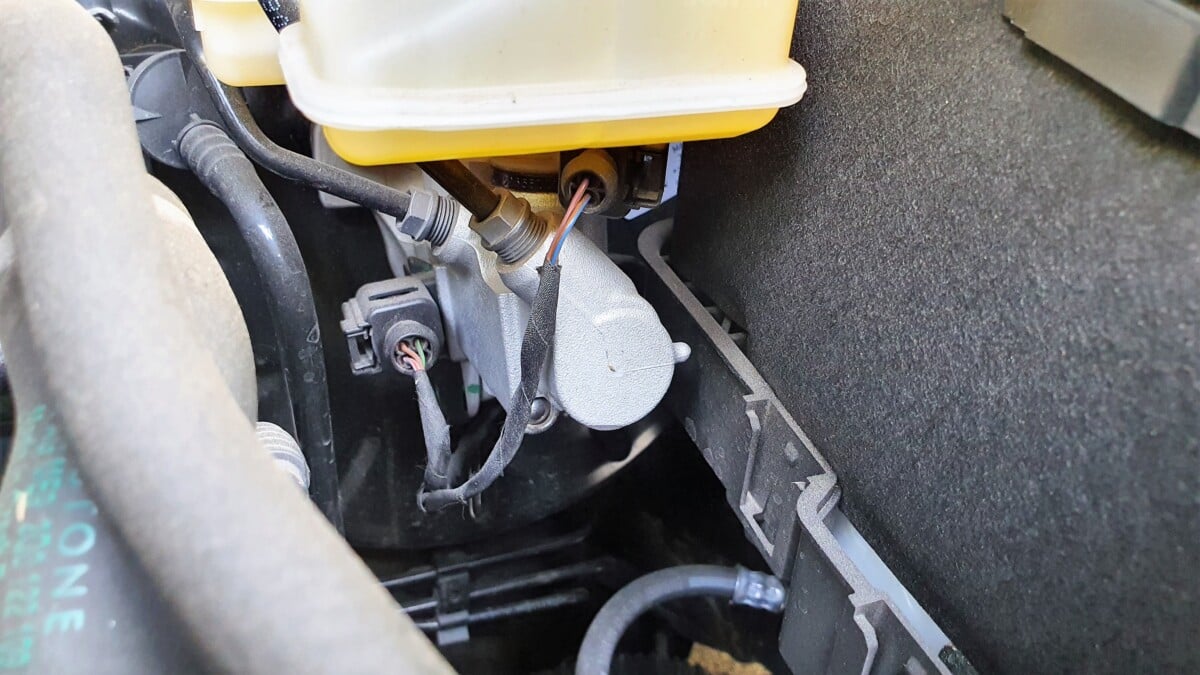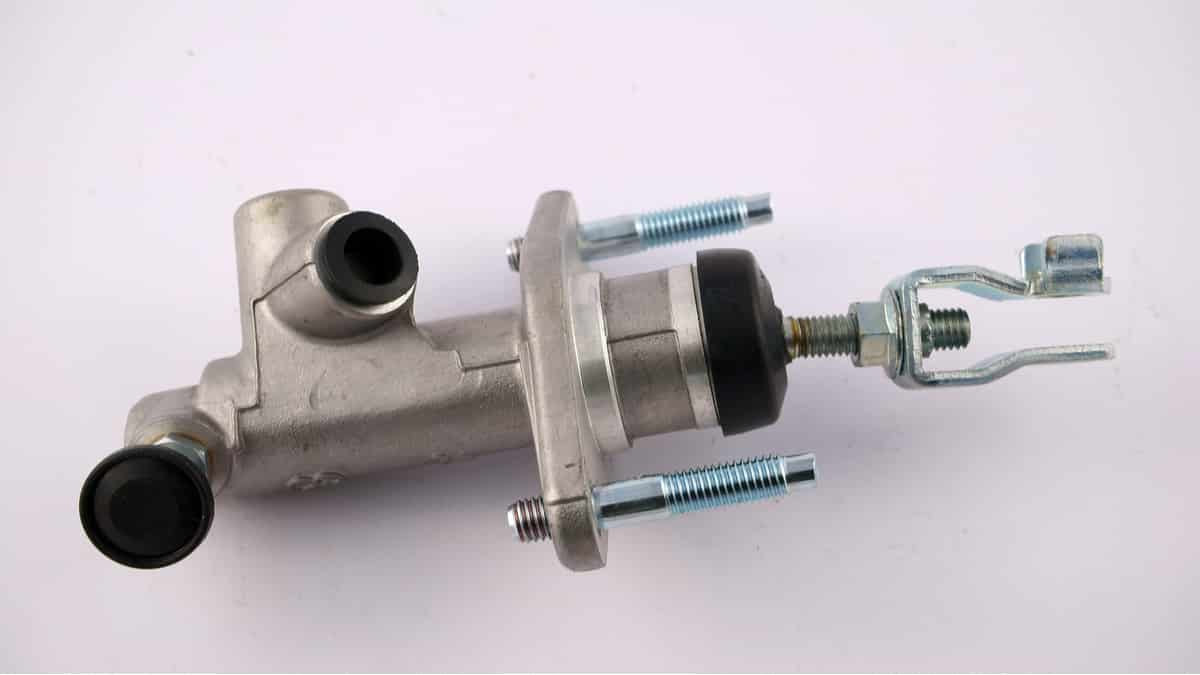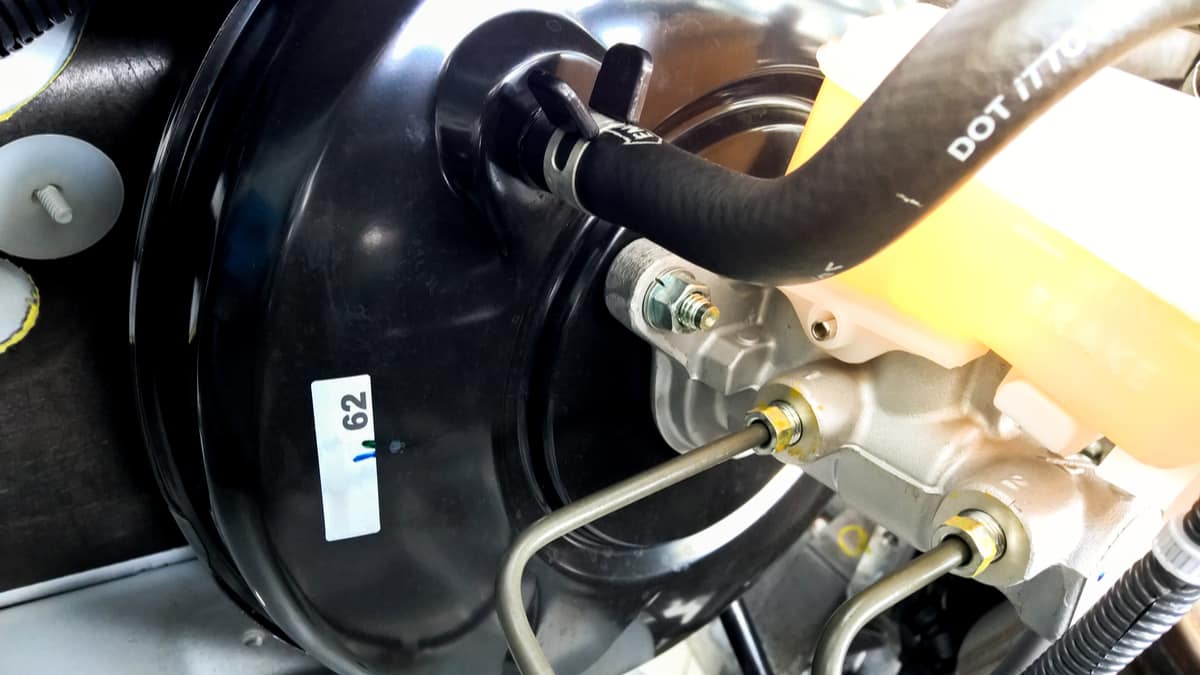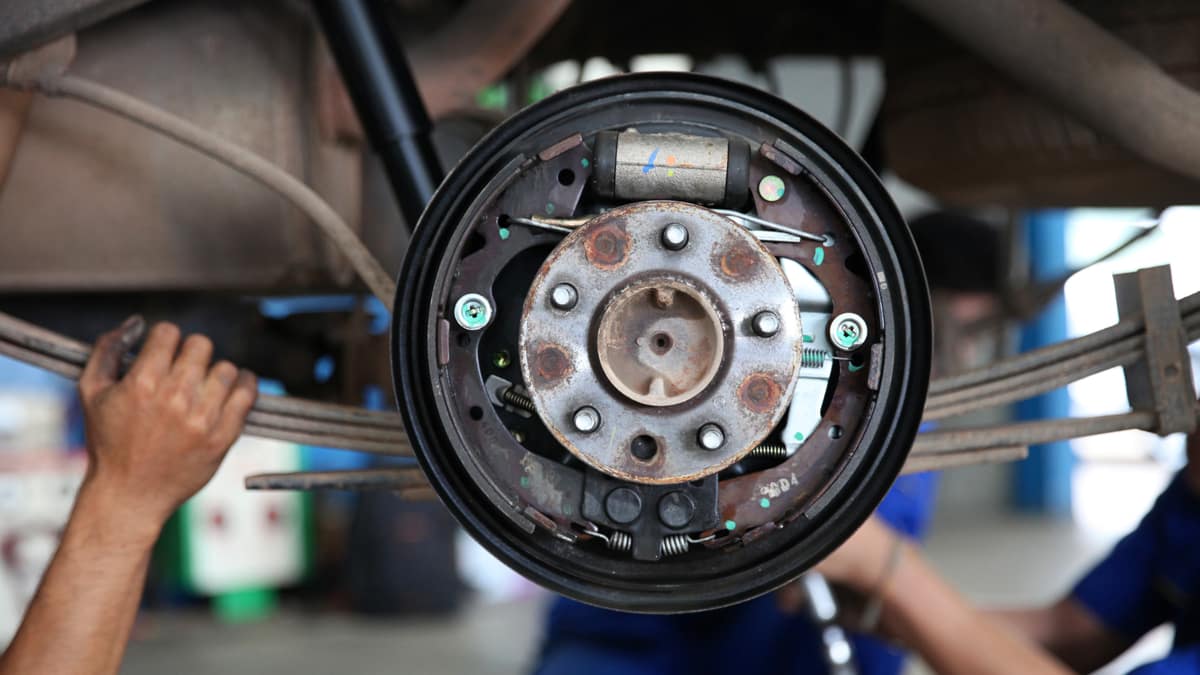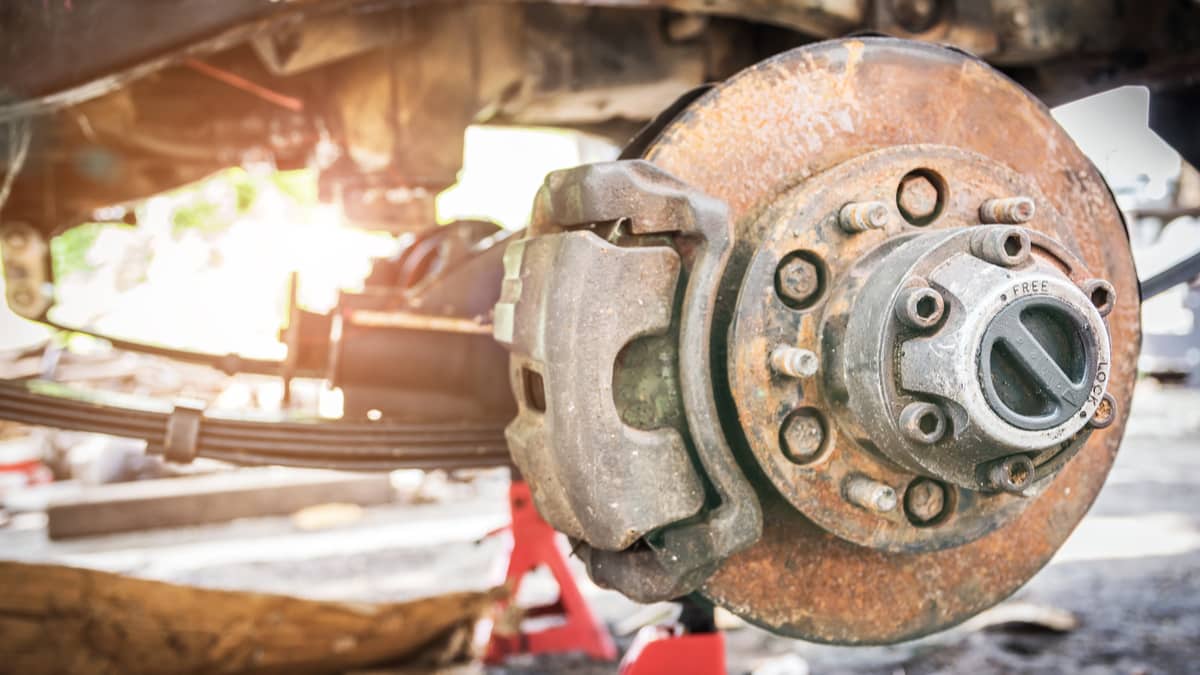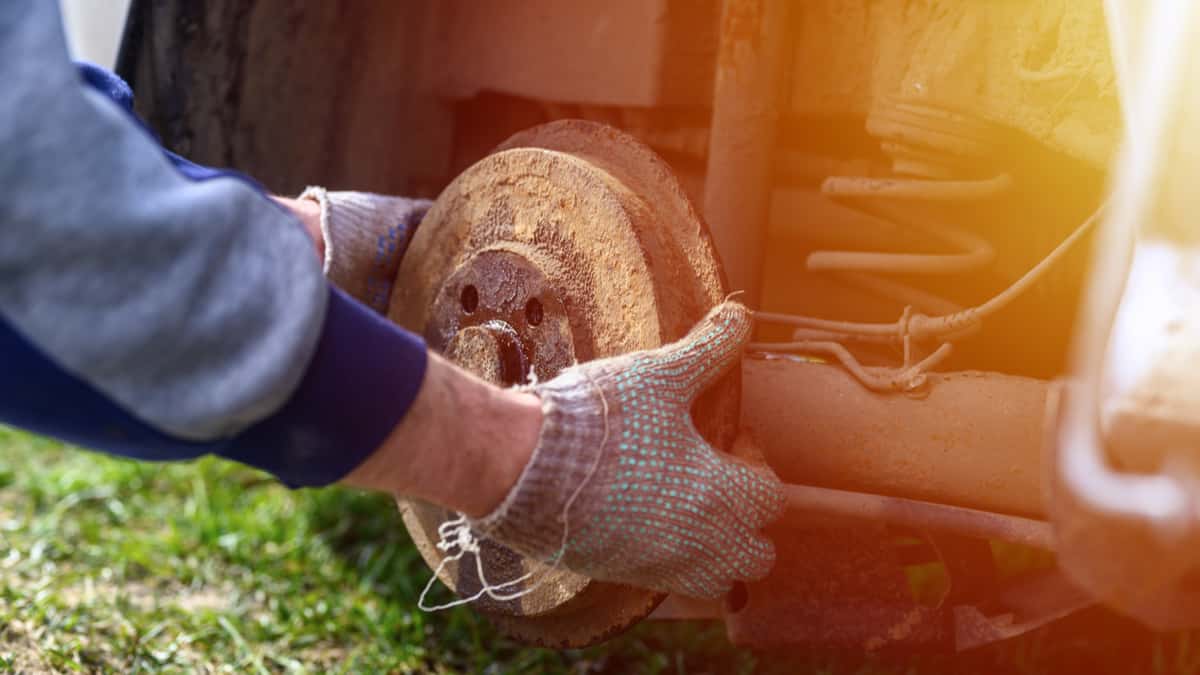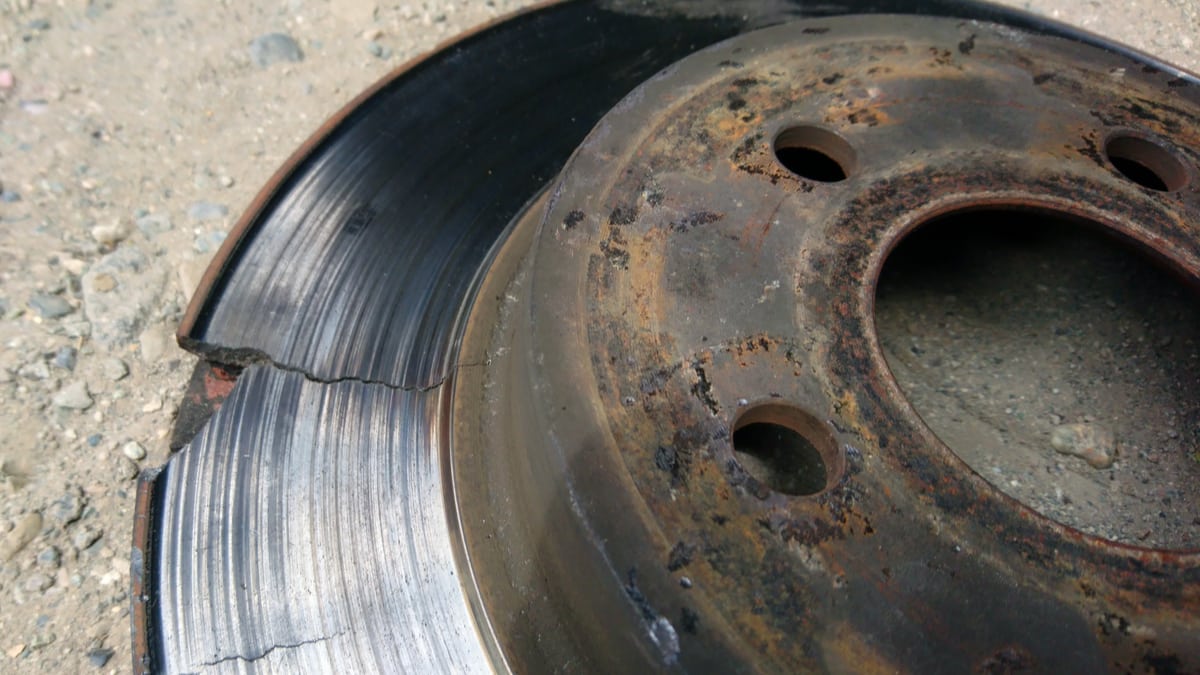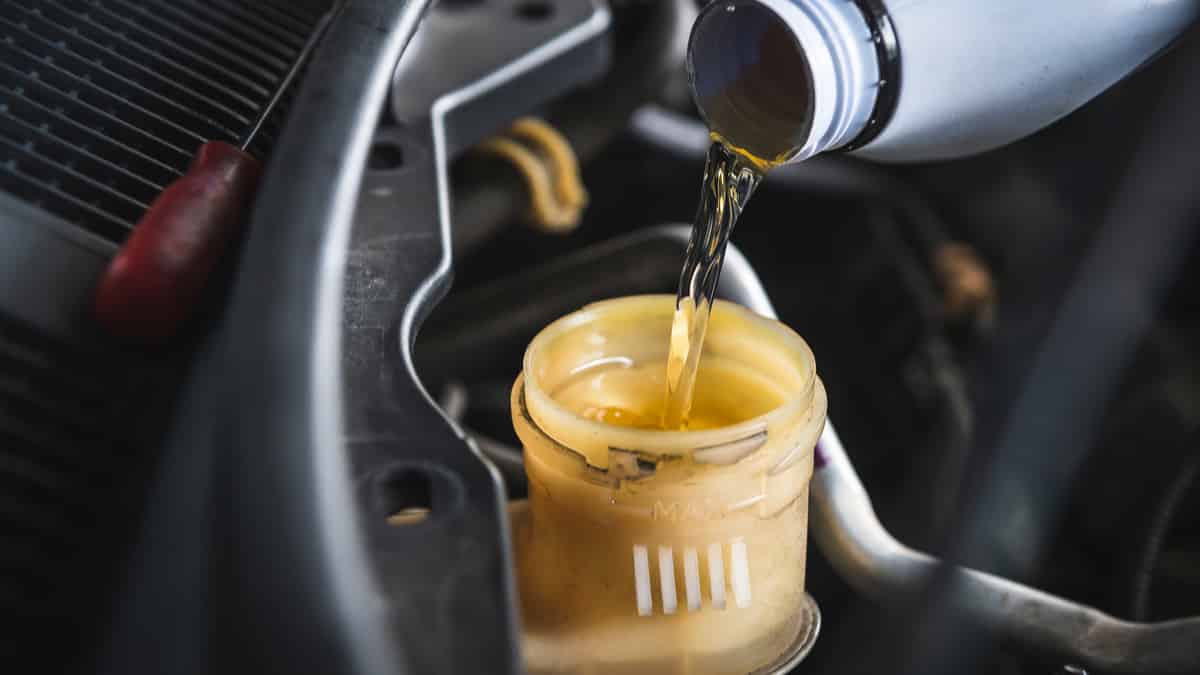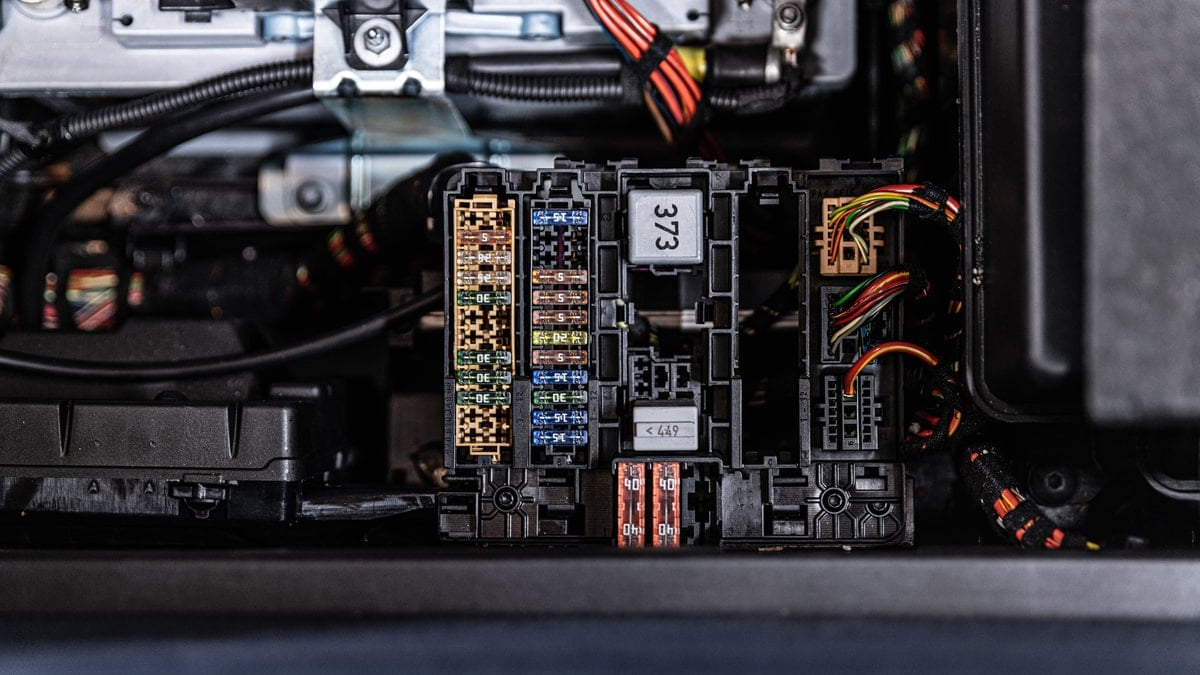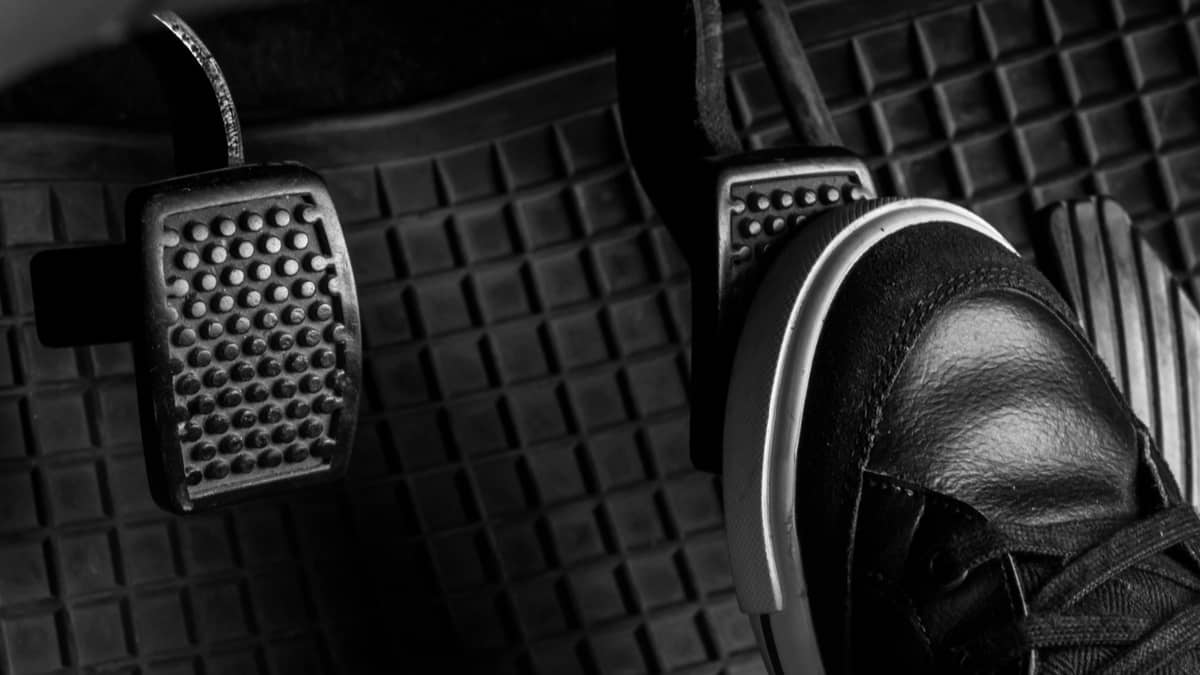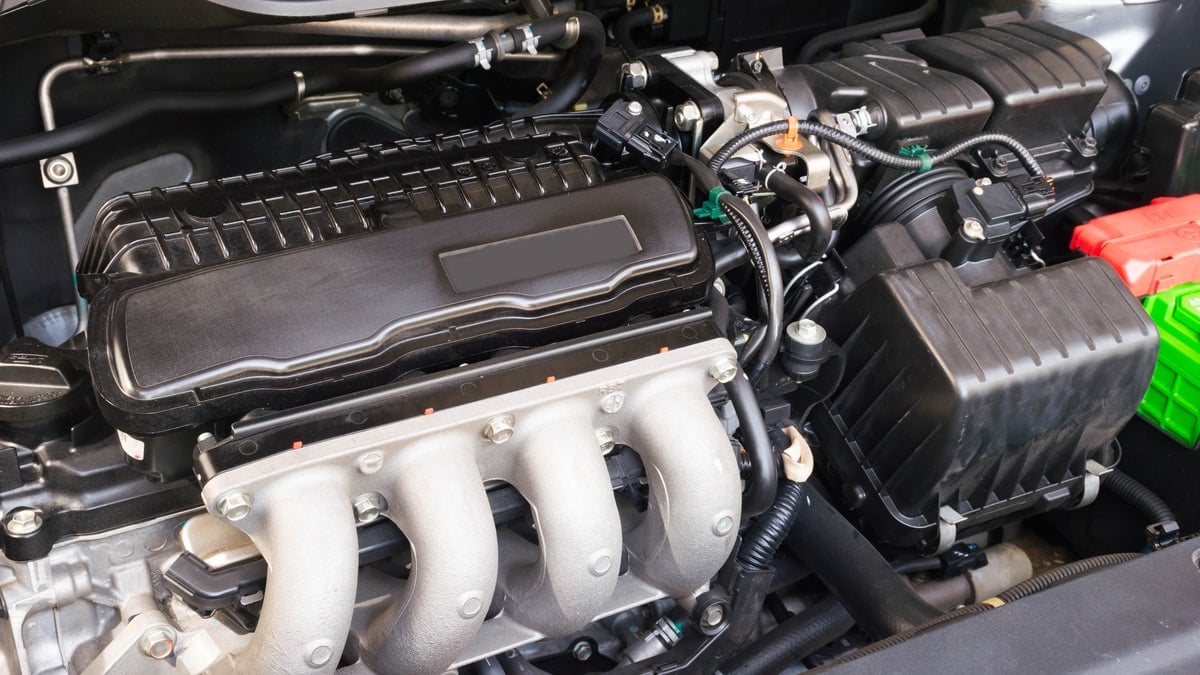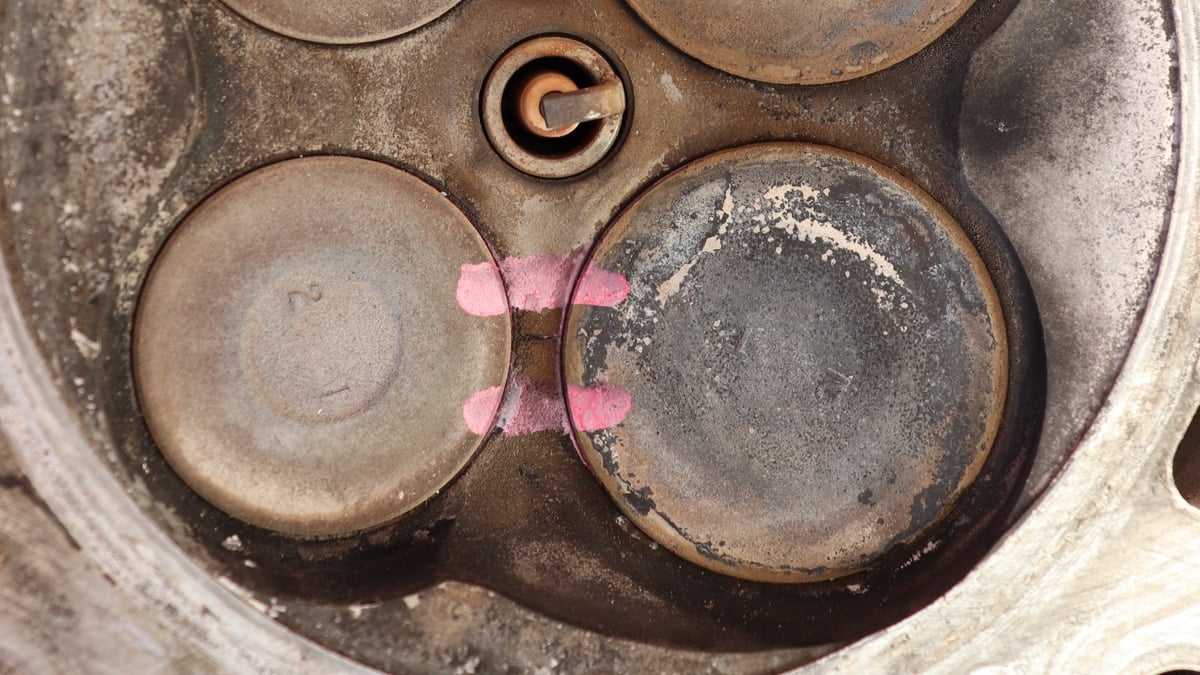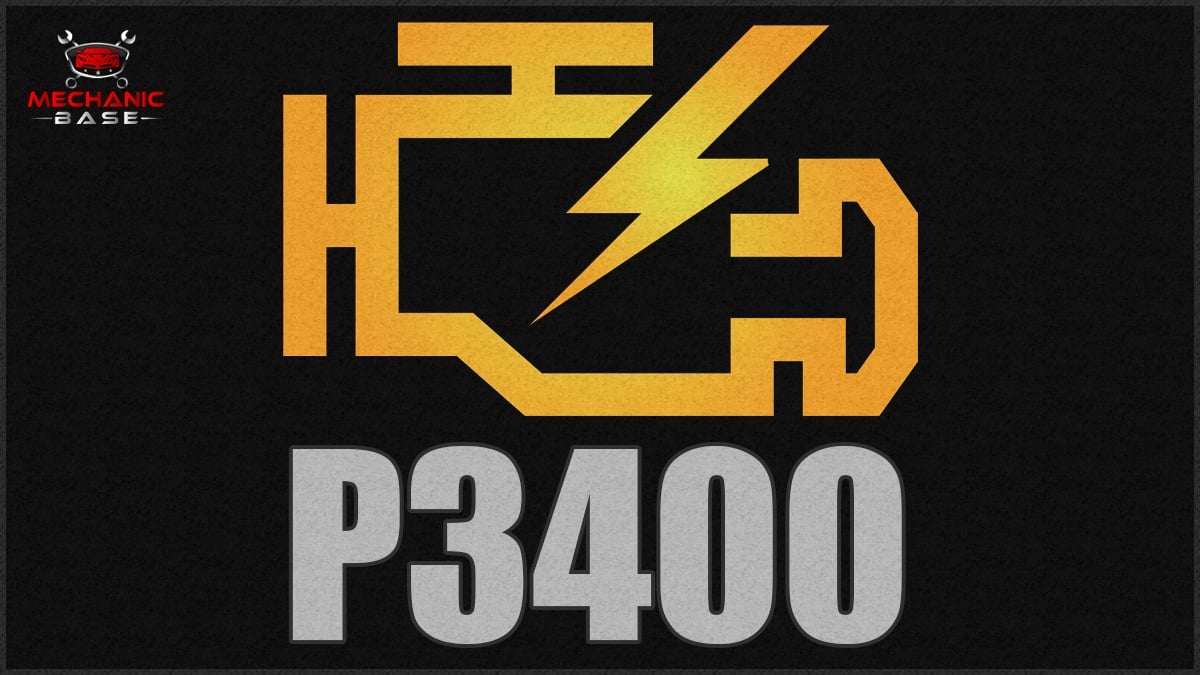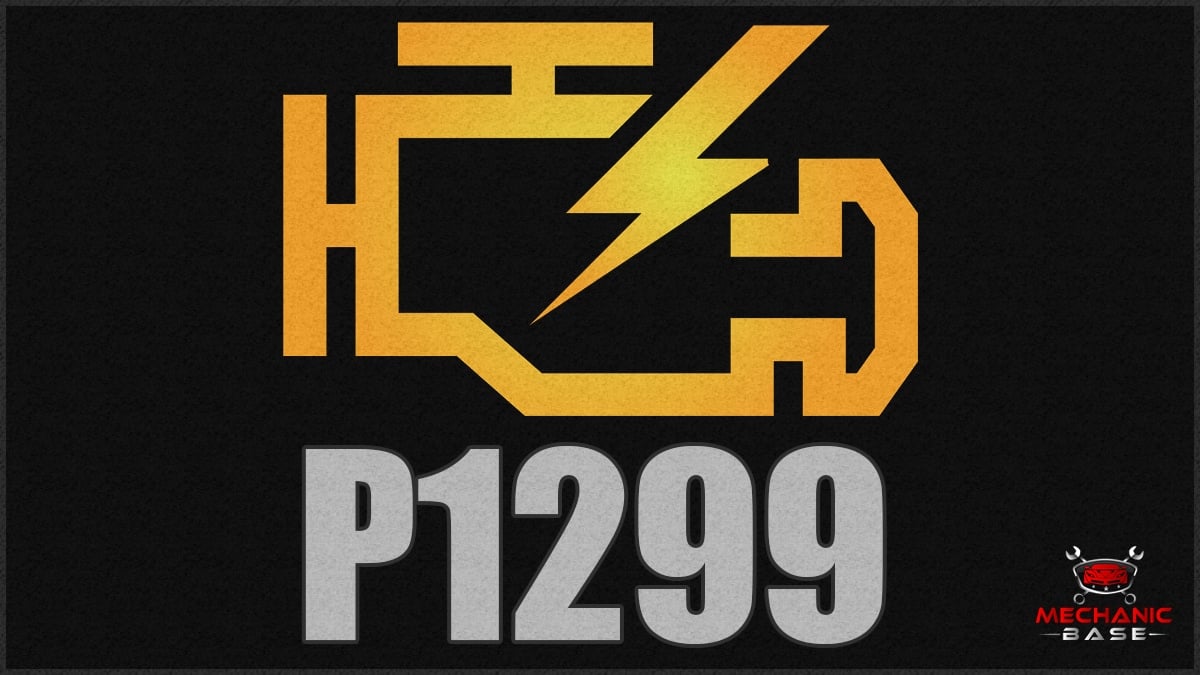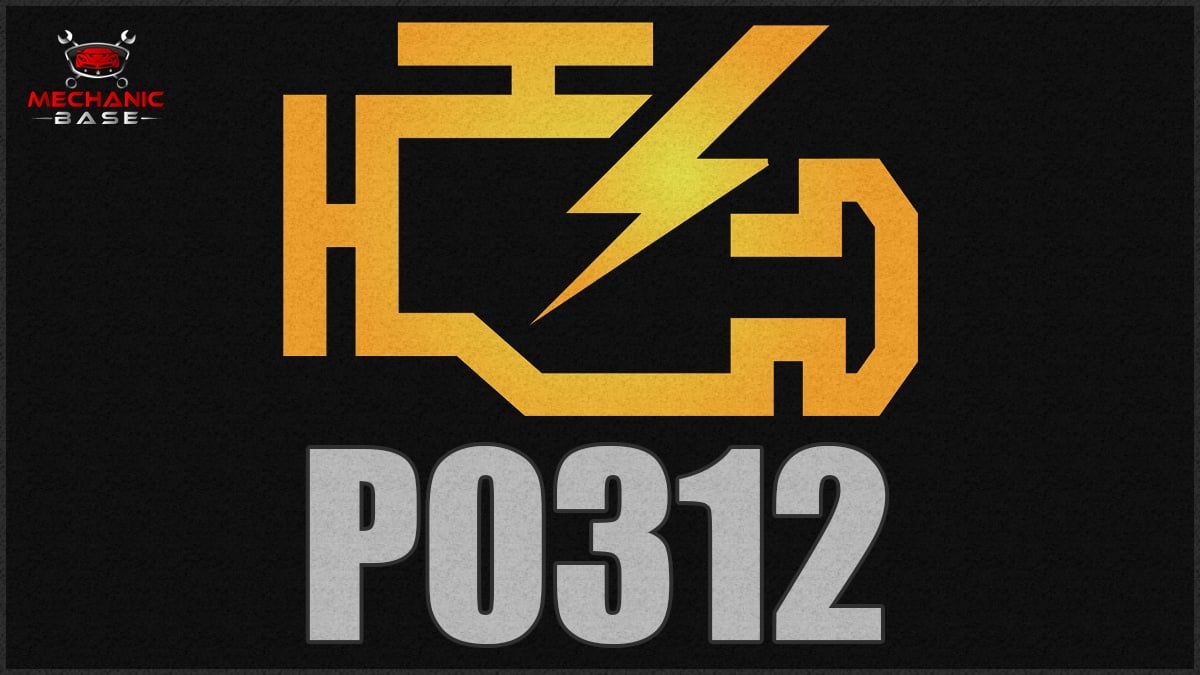The brake master cylinder is an essential part of any automotive brake system. If you are experiencing problems with the brakes, you may be dealing with some of the symptoms of a bad brake master cylinder.
In this guide, we cover the most common bad brake master cylinder symptoms, along with discuss its purpose and show you the location. We give you instructions to test the brake master cylinder and give you an average replacement cost. At the end of the guide, you’ll find the most common questions that get asked.
Symptoms Of A Bad Brake Master Cylinder
When the brake master cylinder begins to fail, you may notice a soft or spongy brake pedal, inconsistent braking power or a hard pedal. It can also cause decreased braking power, a brake fluid leak or, in rare cases, a complete loss of brakes.
If you are experiencing these symptoms, you want to have them checked out. Here is some more information to consider.
1. Soft Or Spongy Brake Pedal
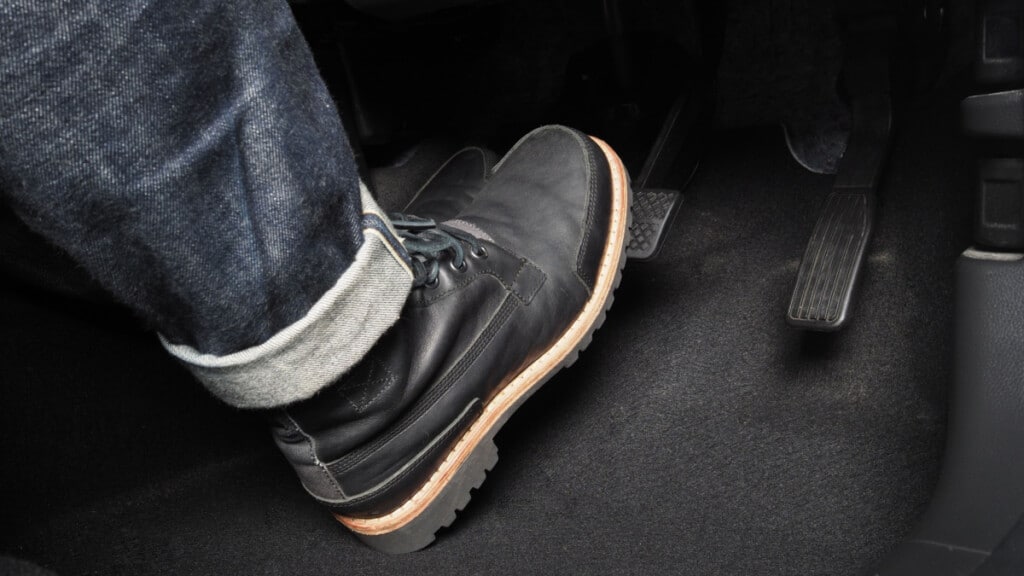
As with most brake problems, a soft or spongy pedal is often one of the first signs there’s trouble. If you have to push harder on the pedal to get the car to stop, there could be a leak or something wrong with the master cylinder.
Spongy brakes are one of the most common brake-related issues, and it can be caused by more than just the master cylinder. For example, it can also mean that there is air in the brake lines. If that’s the case, you need to bleed the brakes and remove all of the air to ensure proper performance. Low brake fluid, a damaged caliper and a bad brake booster also lead to spongy brakes.
2. Inconsistent Brake Power

With the master cylinder failing to work as intended, the brakes start to act erratically. You may notice the brakes working normally one minute and giving you trouble the next.
This situation can be very dangerous because you never know what kind of braking power you will get. At worst, this problem can turn into what we are discussing in symptom #5, which could lead to a major accident.
3. Hard Brake Pedal
The opposite of a soft pedal can also occur. This problem isn’t as common, but it’s not impossible. If the master cylinder becomes damaged, the brakes could lock up, which feels like a hard pedal.
However, there are more common problems that cause this issue. For example, we recommend checking the brake booster first, as well as the booster hose and check valve.
4. Decreased Brake Power

As the master cylinder starts to fail, you will have trouble getting the car to stop in time. This decreased braking power can result in an accident if you aren’t careful.
Again, there are multiple issues that can lead to the same problem. Contaminated fluid, bad brake lines or defective parts could also be to blame.
5. Loss Of Brakes
The worst possible situation would be that the brakes go out. This is one of the most alarming things that can happen while driving, especially if you are traveling at higher speeds.
The master cylinder is designed to operate as a hydraulic pump, providing constant pressure in the brake lines when you push on the pedal. Because of the advanced design, you are unlikely to lose all brakes but could lose them either in the front or rear.
The more common reason for losing all of the brakes would be if the system had a leak and it ran of fluid. Without hydraulic fluid, the brakes can’t operate.
6. Brake Fluid Leaks
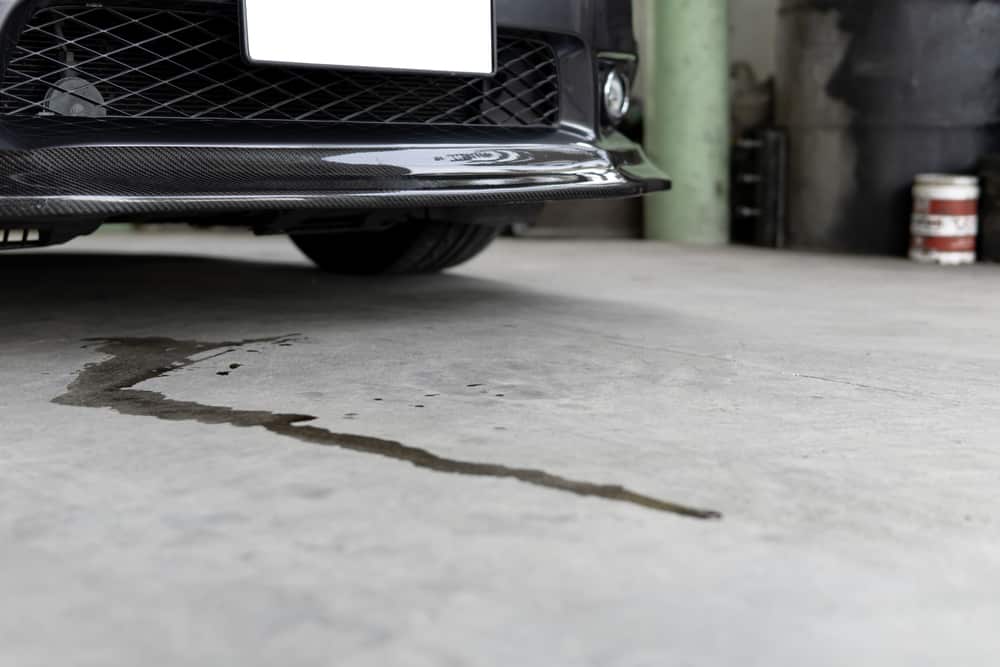
When the master cylinder has issues, there could also be fluid leaks involved. When the fluid is low, hydraulic pressure gets reduced, so the brakes don’t work as intended. You will notice that the fluid reservoir continues to drop, even after topping off the system.
You may also notice that the reservoir is housing fluid that’s dirty or contaminated. Fresh brake fluid appears to be red, clear, yellow or blue, depending on the type. If it is cloudy or dirty looking, you should flush the system. If you see metal shavings in the fluid, it’s likely that the master cylinder has suffered an internal failure and needs to be replaced.
What’s the Function of a Brake Master Cylinder?
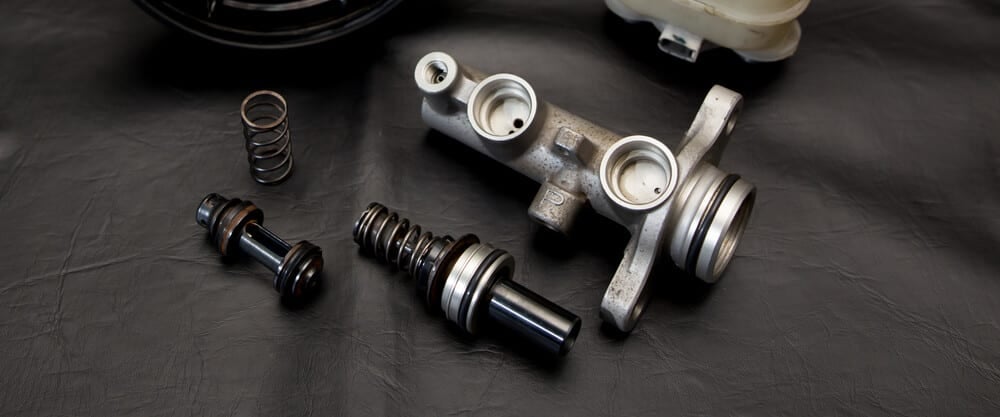
The master cylinder operates as a hydraulic pump, designed to push the fluid through the lines so it reaches the brakes. Modern master cylinders come with two chambers, each with its own piston. The piston is connected to the brake pedal.
As you step on the brake pedal, the pistons push the fluid from the chamber into the brake lines, where it travels down to the wheel cylinders or brake calipers (depending on whether you have disc or drum brakes).
Once the fluid arrives at the brakes, the friction material pushes against either the drums or rotors to slow the rotation of the wheels. Along with the master cylinder, these important parts also play a role in how the system works.
- Brake fluid reservoir: This tank holds the brake fluid that’s used by the master cylinder. If it isn’t full, air can infiltrate the system and lead to a spongy brake pedal.
- Brake vacuum booster: This part is vacuum-assisted to help reduce the braking force needed to push the pistons located inside the master cylinder. When this part fails, you may end up with a harder brake pedal than expected.
- Brake proportioning valve: A hydraulic valve that directs the right amount of pressure to each set of brakes, either the front or the rear.
Because all of these parts work together, it’s difficult to tell which part has failed when there’s a problem. That’s why a professional diagnosis is required, which we will touch on in a minute.
Where Is The Brake Master Cylinder Located?
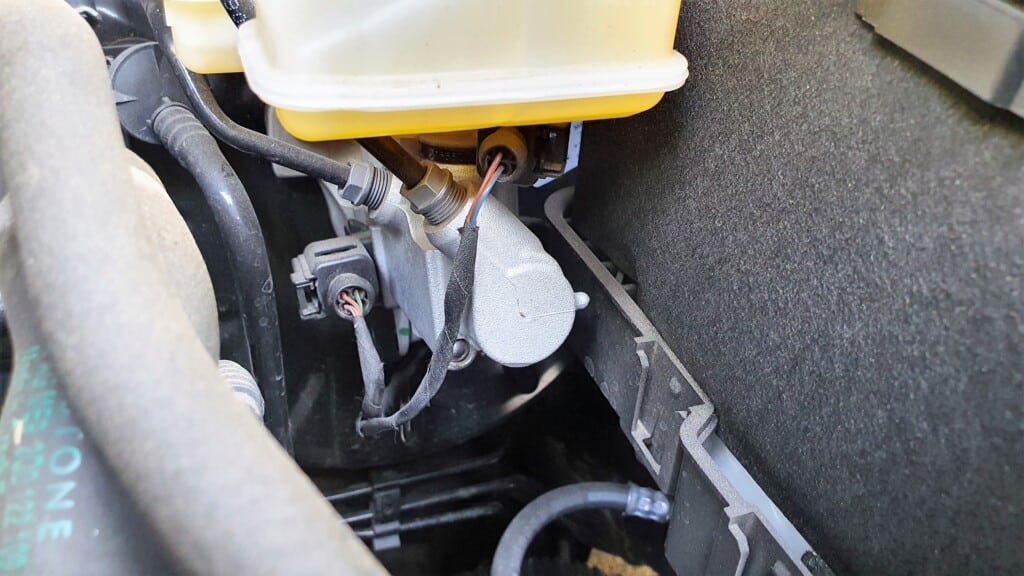
The master cylinder can be found below the fluid reservoir. Pop open the hood and look for it on the driver’s side of your car.
Very often, it’s located on the firewall. You’ll know you’ve found the right part because there will be either two or four brake lines connected to it. The master cylinder is also connected to the reservoir.
If you have trouble finding the master cylinder, reference your service manual. It should include a diagram of the brake system, making it easier to find the location of the parts.
How Do You Test A Brake Master Cylinder?
There are two main ways to test the brake master cylinder, one of which is more accurate. Most home mechanics prefer this method.
- Bleed the brake system completely.
- Pump the brake pedal a few times and hold it down. It should be firm. If it is spongy, there may still be air in the lines or you could have a sticking brake caliper slide.
- If the brake pedal dropped while pumping, you may be dealing with a leak or a bad master cylinder. Look for the leak at the seals and lines.
After these steps, you should have a better idea of whether the problem is with the master cylinder. However, a visual check would be good. With a flashlight, look carefully at the master cylinder. If there’s any leakage or damage, you want to replace it.
How Much Does It Cost To Fix A Bad Brake Master Cylinder?
On average, expect to spend $250 to $450 to have the brake master cylinder replaced. The parts may only cost $35 to $95, leaving the remainder $215 to $355 to pay for the labor. However, mechanic’s labor rates vary greatly throughout the country, so you could easily pay less or more based on where you live.
Additionally, you can purchase a rebuilt master cylinder or a new one. Obviously, the rebuilt option is going to be cheaper, but it’s not always the safest option. It’s usually wiser to purchase a new one and get the warranty, especially since we aren’t talking about that much more money.
If you plan to replace the master cylinder yourself to save some cash, you won’t need any special tools. Just remember to have plenty of brake fluid on hand and to bleed the brakes for maximum performance.
Can I drive my car with a bad brake master cylinder?
You should not drive once you know the brake master cylinder is bad. While it may only lead to minor braking issues, there’s always the chance that you could lose the use of the brakes, at least in the rear or front, independently. For that reason, you should have it repaired immediately to ensure your safety.
Is a brake master cylinder hard to replace?
No, it’s not normally difficult to replace the master cylinder. Usually, they are located under the hood, on the firewall. You will find it under the brake fluid reservoir. The trickiest part is bleeding the brakes, but if you are accustomed to doing your own brake work, this won’t be difficult for you.
How long should a brake master cylinder last?
Expect the master cylinder to last a minimum of 70,000 miles. While it’s possible for the master cylinder to last even longer than that, the rubber seals it has often wear out over time. With these seals wearing down, you can expect brake fluid leaks and decreased stopping power.
What does a bad brake master cylinder sound like?
You shouldn’t hear any unusual noises when the brake master cylinder fails, although it will cause plenty of performance issues. If you notice a hissing sound every time the brakes are applied, it’s more likely that the power vacuum booster is leaking, which also needs to be replaced.
What happens if the master cylinder runs out of brake fluid?
If the reservoir runs out of brake fluid because of a leak or negligence, you will have trouble stopping when you push the pedal. You also risk causing damage to some of the valuable components, such as the master cylinder, because of the air left in the system.
If you are having trouble with the brake master cylinder, it’s important to have it replaced immediately. You should never take chances with your brake system, considering how essential it is to stop your vehicle before an accident occurs.
If you are familiar with the brake system, you shouldn’t have trouble working on the master cylinder yourself. It’s not going to be any more complicated than changing the brakes or bleeding the system. Gather your tools and equipment ahead of time to save some time. If you run into trouble, you can always reach out to a local mechanic for more support.
Categories: Brakes
